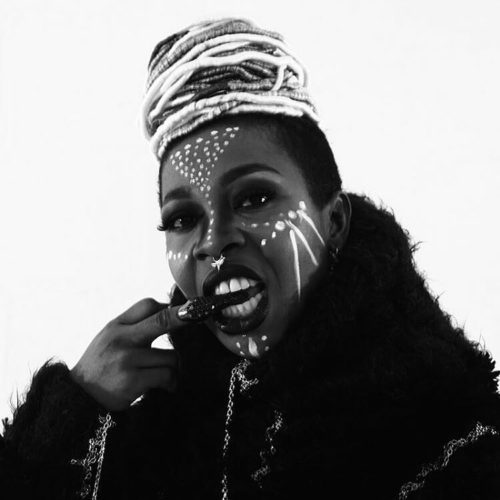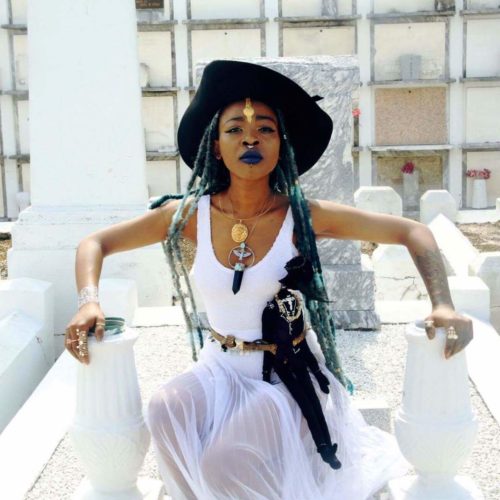TWH – Sitting on West Africa’s Gulf of Guinea between Togo and Cote d’Ivoire is the nation of Ghana. Taking its independence in 1957, Ghana is home to 28,308,301 people [i], with the largest populations found around the coastal capital region, Greater Accra, and around the city of Kumasi in the Ashanti region. Its official language is English and, according to the Ghana embassy, 72% of its people identify as Christian.
But that is a statistical snapshot, and doesn’t tell the nation’s full story. More specifically with regard to religion and culture, Ghana has a rich history that dates back farther than its colonial past, and that spirit still flourishes within its modern existence. Languages, such as Ga, Dagomba, Akan and Ewe are reportedly still spoken by many, even if they are not taught in schools. Indigenous religious practices and beliefs can also be found among certain groups of people, despite the fact that their practice is largely rejected within Ghana’s contemporary over-culture.
![Musician and artist Azizaa [Courtesy photo]](https://wildhunt.org/wp-content/uploads/2016/12/IMG_1269-500x333.jpg)
Musician and artist Azizaa [Courtesy photo]
In her most recent project, Black Magic Woman, Azizaa powerfully demonstrates her spiritually-driven mission. “If I’m going to sing, I’m going to sing about what I’m passionate about,” Azizaa told PBS in a recent interview. Black Magic Woman is a single testament to that very passion, as it questions Ghanaian social expectations and behaviors with regard to both gender and religion.
Azizaa grew up between Ghana and the United States, specifically New York and New Jersey. She said that as a child she found “beauty in nature,” and that her household was “always filled with laughter from morning to night.” Azizaa also noted that, even as a child, she was interested in “the weird things people did,” which demonstrates a keen and early interest in human behavior.
In an in-depth interview with The Wild Hunt, Azizaa talked more about her inspirations, her religion, Ghanaian culture and, of course, the music.
The Wild Hunt: What was your family religion?
Azizaa: They are Ewe Christians. I learned and saw a lot.
TWH: Was there much music in your childhood?
A: Coming from the Ewe tribe, everything becomes music. Everything. If you borrow money and don’t pay, and come back for another loan, there is a song for that. So we sang and laughed. Besides that my grandfather Azizaa was a composer as well as a herbalist. So my Dad was a natural, and my grandmother from my mom’s side was also a singer. Hence my parents love for music. so we couldn’t avoid music in the house.
[The Ewe (pronounced Ev-ay) is a well-known tribe within both Togo and Ghana. According to reports, Ewe is the largest ethnic group in Togo and the 3rd in Ghana. As noted in local news outlet BuzzGhana, this group is particular known for ancestor worship, close family ties, and excellence in weaving. In our interview, when asked to clarify the term “Ewe Christian,” Azizaa said, ” I mean Christians who are Ewe.” She added, “Most still practice Vodou knowingly and unknowingly because it is deeply buried in our roots.”]

Azizaa [Courtesy Photo]
A: i worked in the medical field among other really shitty jobs.
TWH: Outside of your childhood influences, what musicians, sounds, or artists have influenced you and your music the most?
A: I go through phases. I can be heavy into Skunk Anansie music one day, then be obsessing with James Blake the next or be crazy for Curtis Mayfield. Then, next I am popping off with Amboulley. It’s all a wave for me. I am not attached to much on this earth, so my inspiration comes from different avenues.
TWH: Let’s talk about religion, is it true that you are now practicing Vodun? When or how did you make a switch from your family religion? And, why did you make that switch?
A: Yes. The switch was natural. It was guided by the ancestral spirits.
It wasn’t a decision. My spirit wanted what it wanted, and I got tired of not giving it. I tried what my spirit was asking for. I am thankful for listening
TWH: How did this spiritual change affect your life and your music?
A: I think I have always been this, but I didn’t have the needed information to easily guide me to where am at now.
TWH: Does following the calling of the ancestors and the land spirits empower you from that perspective? Do you feel like you are shaking off an imposed reality: the colonialism and forced religion of Europe?
A: Absolutely. I felt empowered the very day that I started practicing the ancestral way of life. I knew I shook off the spell of the ghost, or better yet the gospel (ghost spell).
TWH: Will you tell us what deities now call to you?
A: A few. I am very familiar with Papa Legba, the Mami Wata Spirit, and the Azizaa Spirit of course

Azizaa [Courtesy Photo]
A: I would like to think that 60-70% of the population who hide behind Christianity [practice Vodun], and out of that percentage maybe 25% practice without shame or hiding their practices.
TWH: When you are in Ghana, are you in danger or looked down upon for your religious beliefs?
A: I am frowned upon, but the smart ones know the message that I bring. It is the ones who are under mass hypnosis (Christianity) that think I am bad for their mental and spiritual well being.
TWH: In your opinion, is Ghana typical or atypical for the other nearby West African nations with regard to traditional spirituality and religious beliefs?
A: Not all West African countries are the same. The Francophone countries I think are a little better off. Look at Togo and Benin. They have held on to [their traditional] cultures much stronger than Ghanaians and Nigerians.
TWH: Do you believe that there is hope for a renewal in Ghana of traditional spirituality?
A: For the young generation, absolutely. For our parents’ generations, maybe not for all. But who am I to say what the universe has in store.
TWH: One thing that Ghana is known internationally for is the infamous witch camps. Can you briefly speak about this with regard to traditional practices?
A: These are just poor women who have no one to speak on their behalf, due to their husband or child’s untimely death. Some of them are kept in the camps because the husband had land, and the brother decided [that he wanted] to keep the land. The widow of his brother must be a witch in order for him to acquire the land legally from the local king or whomever may be in power.
Believe you me, if these were real Witches, do you really think for one second that they would be in that place? Barely getting by? Nope! Witches are feared in our communities here.
Don’t you have to catch a witch first before you can imprison them? Think about it.
![Azizaa [Courtesy Photo]](https://wildhunt.org/wp-content/uploads/2016/12/received_10153853644337939-500x500.jpeg)
Azizaa [Courtesy Photo]
Mahama goes on to speculate on why women, specifically the elderly, are being accused of witchcraft, saying, “These are all old superstitions created to keep women down.” She corroborates what Azizaa said.The accusations of witchcraft are nothing more than false claims, and the incarcerated women are not practicing Witchcraft and may in fact be Christian.
However, this well-documented human rights issue becomes more complicated when considering the broader religious implications and spiritual culture within Ghana. Mahama, for example, asks people to look to God for answers to such witchcraft-related problems, as have others in the Ghanaian government.
This religious reality complicates the overall issue, and even feeds the existence of the camps. In Azizaa’s opinion, Ghana’s gender-based social inequalities and its culturally-embedded religious bias are thoroughly intertwined, and she hits on that very idea head-on in her latest project.]
TWH: Your latest video has a powerful message. Aside from the very obvious juxtaposition of Christianity and traditional religion, it also contains a strong commentary on gender inequality. The evangelists almost seem to rape the woman in the opening scene. Will you talk about this?
A: Unfortunately a lot of the pastors and believers are programmed to believe that their position as men automatically makes them better, and they can control women and touch them any how they see fit. Half of these guys are conditioned to see women as a mattress and, with the so called word of their God, they can touch women inappropriately.
They’re uncouth and disrespectful to women in general, because of their belief system. So to answer your question: yes, it was intentional, very “rapey.” They do these things intentionally as well.
TWH: If so, how do concerns over gender inequality weave into your work and your spirituality?
A: It is literally intertwined with my work as my new project is talking about the power and strength of a woman, the magic of her power pouch. The MA of creation. We birth Nations, then we raise them. The woman deserves a lot more respect in our communities.
TWH: Consider what you have already said, what is it like being a strong woman in Ghana?
A: I happen to be pretty comfortable in my own skin, and have no fucks to give as to whether they like me or not. But from what I see, some of the men in Ghana don’t have any respect for women, and those I call the gutta boys. They would try to display their manly strength at the drop of a dime.
TWH: Why “Black Magic Woman” as a title?
A: It was the title that came with the song when it was inspired and given by my muse.
TWH: With regard to your mission, your music has a very modern feel but also a strong sociopolitical statement. Do you believe music has a special way of reaching people?
A: The truth is I really don’t try to be anything other than what I am. When the spirits or ancestors give me music, I receive it as is and deliver as its been requested to by the giver.
TWH: What has been the reception of Black Magic Woman in Ghana and beyond? Has there been backlash?
A: The reception of Black Magic Woman was a surprise because it was well-received by the few into the lifestyle. [I’m not] really into statistics yet. The world is yet to hear Black Magic Woman. And,no I see nothing as a backlash. Threats are the everyday thing. The spirits and I laugh at the threats.
TWH: If you had to say one thing to the world, what message would you want them to hear? What do you want them to know?
A: Practice your craft, whatever that may be. Or I say, happy yourself, nobody go happy you! (Broken English, a.k.a Pigen).
[Thank you, Azizaa, for taking the time to talk with us. If you want to learn more about Azizaa, visit her website www.azizaa.com, and her social media handles are Twitter and Instagram: @azizaamusic, and AZIZAA on Facebook.]
* * *
NOTE: [i] Ghana Statistical Service, 16th September, 2016
The Wild Hunt is not responsible for links to external content.
To join a conversation on this post:
Visit our The Wild Hunt subreddit! Point your favorite browser to https://www.reddit.com/r/The_Wild_Hunt_News/, then click “JOIN”. Make sure to click the bell, too, to be notified of new articles posted to our subreddit.